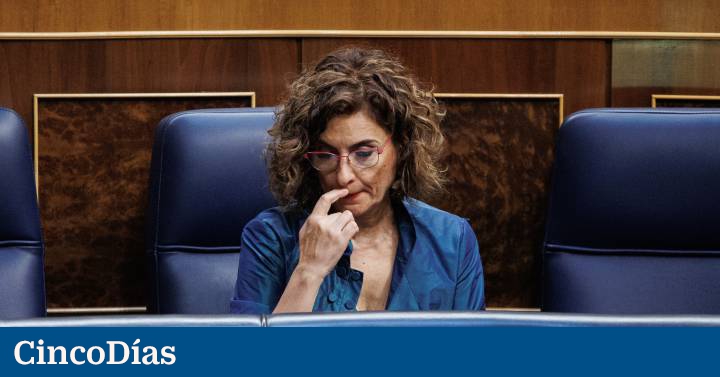“At a time of global economic uncertainty, adopting general measures beyond selective and temporary measures to deal with the urgencies of the moment can be counterproductive.” With these words, the Secretary of State for the Treasury, Jesús Gascón, puts the future tax reform on hold again. However, his ideas, published yesterday in the magazine A tax reform for competitiveness (published by the College of Economists of Madrid and the General Council of Economists), show some of the guidelines on which a possible reform would revolve. The Secretary of State, among other points, refuses to focus the debate on high incomes and large companies, commits to reviewing various deductions and denies that the fight against fraud is enough to increase public revenue.
In his presentation, the former head of the Tax Agency assumes that “any increase in spending on health, education and social benefits must go through an increase in income over GDP.” From here, however, Gascón urges a good diagnosis of the situation, analyzing the great magnitudes in relation to GDP: public income and spending. It is necessary, for example, to have a realistic approach that does not generate unrealistic “expectations”, he stresses.
Number two by María Jesús Montero asks at this point not to focus the bulk of the reform on the wealthiest profiles. As detailed, in 2019 only 0.61% of personal income tax returns included income and returns of more than 150,000 euros, while in Companies only 2.12% of the filers had an annual turnover of more than six millions. “This does not mean, at all, that there is no room to improve the progressivity of the tax system or that corporate taxation should not face the problems of digitization and globalization in line with international proposals,” she points out. However, “the approach must be realistic without generating expectations that cannot be met,” she adds in what can be interpreted as a message to United We Can and some usual partners of the Government.
Gascón also puts the focus in his lines on another “distorting” element of the debate, which arises when the debate focuses excessively on nominal tax rates “as if the tax rate were the only factor to be considered.” It should also be taken into account, he adds, the exemptions, reductions, bonuses, deductions, special regimes and incentives that “reduce effective taxation very significantly” in most tax figures. “Fortunately”, he affirms, the evaluation and revision of these incentives is an increasing value.
Throughout the text, the Secretary of State for Finance repeatedly highlights the proposals collected by the group of experts gathered by the ministry in the white paper for tax reform, a document that “constitutes a good starting point” and has a “very complete diagnosis”.
Gascón, specifically, believes that it is necessary to identify which are the taxes that generate a tax gap with neighboring countries in order to act on them. If the comparison with the partners of the European Union is carried out using the arithmetic mean, the negative differential comes mostly from VAT. If, on the other hand, it is done with the weighted average, the tax to be redesigned would be the personal income tax.
The white paper proposes that income tax become a more powerful lever for articulating social policies and establishing compensation for the most vulnerable taxpayers who may be negatively affected by tax measures that promote economic efficiency or pursue environmental goals. “It cannot be forgotten that we are the penultimate country in the European Union in weight of environmental taxation over GDP. And the country in which tax incentives in VAT have greater weight”, adds Gascón.
However, in order to deal with these imbalances and provide compensation to the most vulnerable through personal income tax, “it would be necessary to expand the obligation to declare the tax”, since the lowest income taxpayers today do not have to file the declaration. Therefore, a complete reform of the tax that has the greatest weight on the total collection would be necessary.
Fiscal fraud
The widespread idea among many taxpayers that by tackling tax fraud Spain’s revenue deficit could be solved is also questioned by the Secretary of State for the Treasury. Although the reduction of fraud is decisive, he acknowledges, “it is not a realistic alternative to tax reforms that seek to increase public revenue.” You have to explain it well, he insists. “The volume of tax fraud is not negligible and constitutes a problem to combat in all countries, including in Spain, but it is not the explanation for our income differential with the European Union nor is it a real alternative to tax reforms that seek to increase tax collection”.
Sometimes, Gascón continues, “even from business sectors”, there is talk of percentages of fraud or black economy of 25%, a figure that, he insists, would only be possible if one in four companies, including large and medium-sized, operated completely in the black or one in two hide 50% of their operations. However, Gascón emphasizes, “Spain presents better results than the average and the median of the countries of the European Union and the Eurogroup in terms of VAT tax gap. And it is around the mean and the median in the case of the submerged economy susceptible to tax regularization”.

